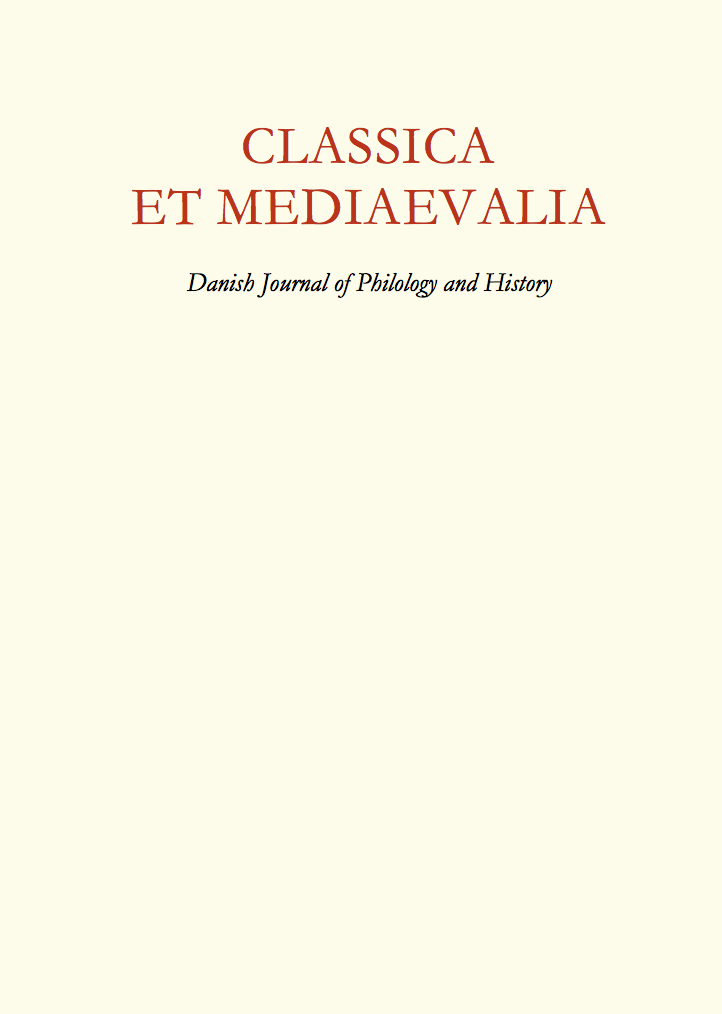Private Associations or Public Bodies? The Gerousiai of the Greek Cities in the Imperial Period
DOI:
https://doi.org/10.7146/classicaetmediaevalia.v73i.143310Abstract
The article explores the position of the Gerousia in the associative universe of the Greek cities of the Imperial period. The first section examines the public dimen- sion of the Gerousia, as it emerges from its interaction with the civic institutions, the local notables and the imperial power. The second section focuses on the Gerousia’s sim- ilarities with private associations, both in their organizational form and in several of their activities, such as the protection of graves and the administration of funerary endowments. The third section draws a comparison between the public role of the Gerousia and that of private associations. Finally, the last section proposes a taxonomy of the various corporate bodies of the Greek polis in relation to their access to events, acts and symbols that expressed the sovereign power of the civic community and its collective identity. In these terms, the Gerousia occupied an impressively high position which brought her very close to the Council and the People.
Downloads
Published
How to Cite
Issue
Section
License
Copyright (c) 2024 Nikos Giannakopoulos

This work is licensed under a Creative Commons Attribution 3.0 Unported License.
Authors who publish with this journal agree to the following terms:
- Authors retain copyright and grant the journal right of first publication with the work simultaneously licensed under a Creative Commons Attribution License that allows others to share the work with an acknowledgement of the work's authorship and initial publication in this journal.
- Authors are able to enter into separate, additional contractual arrangements for the non-exclusive distribution of the journal's published version of the work (e.g., post it to an institutional repository or publish it in a book), with an acknowledgement of its initial publication in this journal.
- Authors are permitted and encouraged to post their work online (e.g., in institutional repositories or on their website) prior to and during the submission process, as it can lead to productive exchanges, as well as earlier and greater citation of published work (see The Effect of Open Access).





